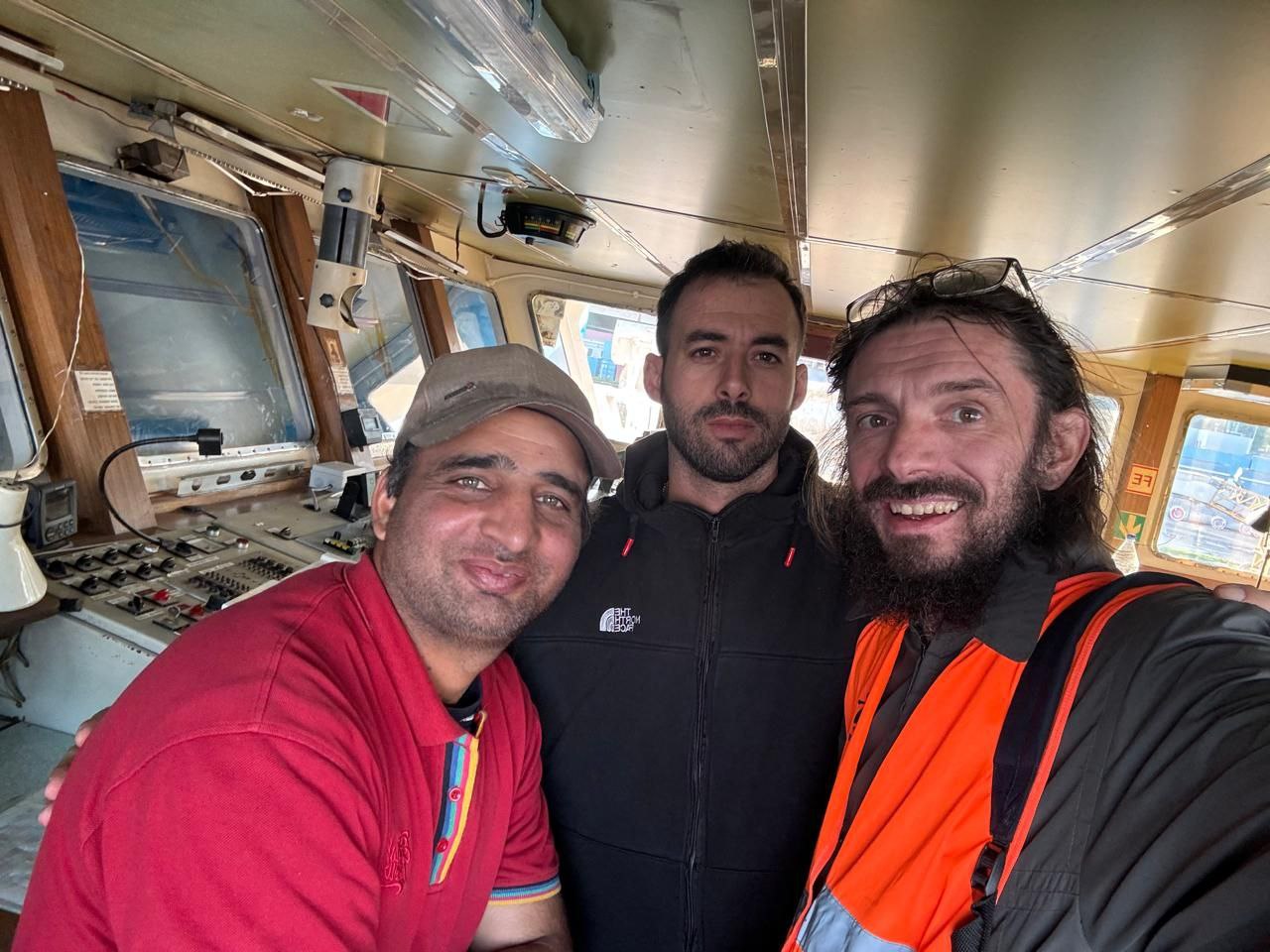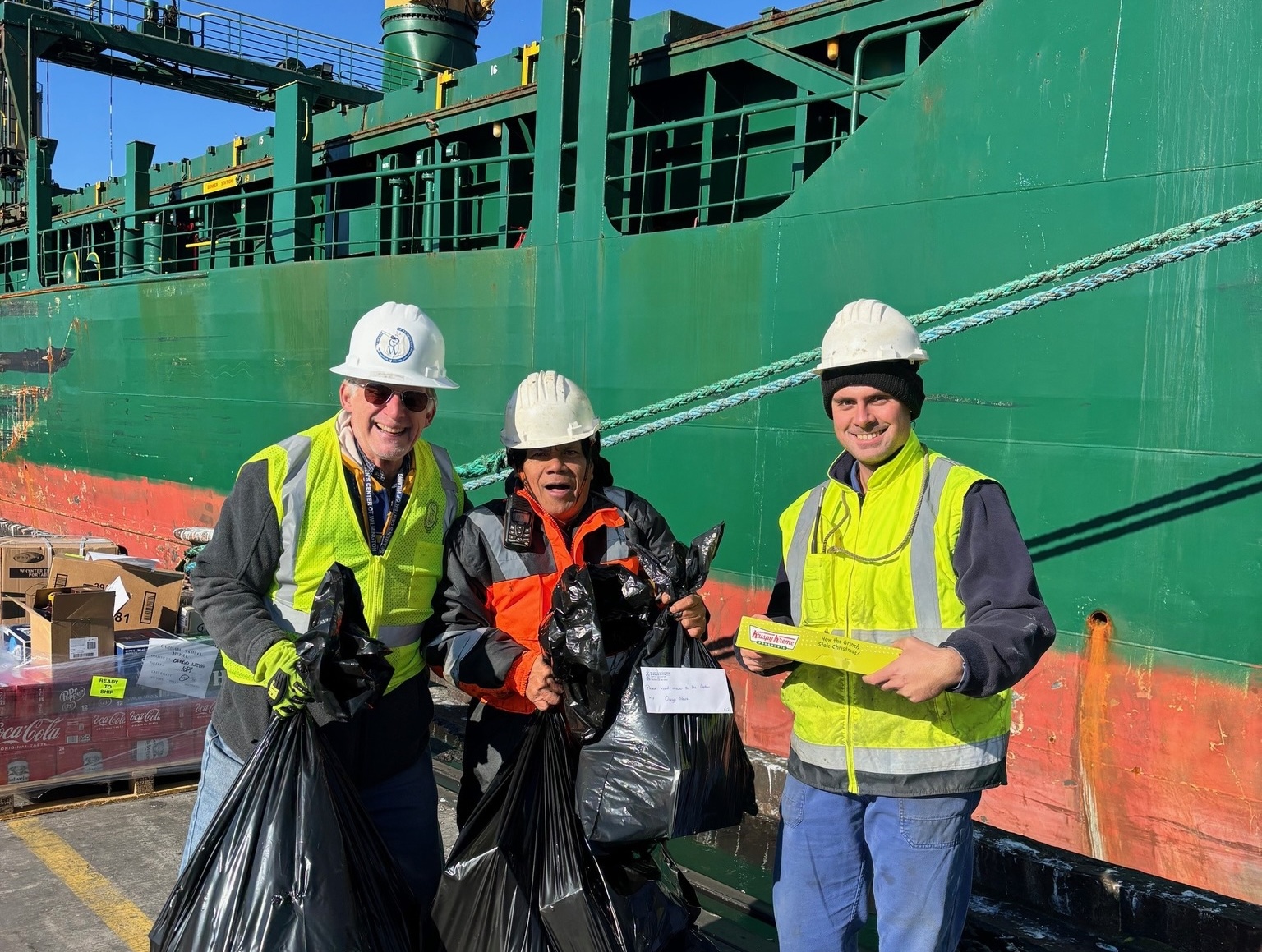Interview by Viktoriya Mazur, UGCC Information Department on December 24, 2024 (published originally in Ukrainian here)
Soon, Ukrainians, along with the rest of the world, will celebrate the birth of Christ. Christmas is always associated with miracles and brings hope. We rush to be with family and loved ones, anticipating reunions, asking for forgiveness, offering forgiveness, praying, and singing carols. Everyone tries to prepare for this meeting and be in a family circle. However, there are those who, because of their profession, cannot be with their families in the comfort of their homes—for example, seafarers. Father Oleksandr Smerechynskyi shared insights about how seafarers celebrate Christmas and the ministry to them and their families in an interview with the UGCC Information Department.
Celebrating Christmas at Sea: A Blend of National Traditions
— Father, could you please tell us how seafarers celebrate Christmas?
For seafarers, unlike us land-dwellers, as strange as it may sound, Christmas begins when the captain decides. Since life at sea is a constant production process, the captain determines the date for Christmas celebrations to avoid disrupting the workflow.
Last Saturday, for instance, on a ship docked in port, the crew celebrated Christmas because the next day they were heading to sea for a 25–27-day voyage to China. The captain decided that Christmas should be celebrated before departure, as challenges may arise during the journey. Seafarers are accustomed to this. Additionally, they perceive time differently due to constantly changing time zones during voyages.
Another aspect is that ship crews are often mixed—Filipinos, Ukrainians, Indians. Thus, Christmas celebrations on board are a mix of different national traditions. The crew may even consist of non-Christians, such as Chinese or Arab sailors. This diversity influences everything from the food prepared for Christmas to the decoration of the Christmas tree and the singing of carols.
The Apostleship of the Sea [Stella Maris] strives to create an atmosphere of home-like hospitality where seafarers can find solace for their souls amid the challenges of their voyages.
Serving Seafarers as a Priest
— Twenty-four years ago, the Catholic mission “Apostleship of the Sea” [Stella Maris] was officially registered. How do priests minister to seafarers?
Priestly ministry is becoming increasingly rare worldwide due to a vocation crisis in the Catholic Church. Typically, seafarers serve other seafarers, although under the Church’s supervision.
This ministry often appears to be one of hospitality, especially for foreign seafarers who arrive in ports unfamiliar with the local customs—particularly in Ukraine, amidst the war. As Christians, we fulfill the duty of hospitality to strangers.
Regarding the Ukrainian Greek Catholic Church (UGCC), we plan to organize a network of services for Ukrainian seafarers scattered across the globe. Building a separate network is highly complex and costly, but our large global church communities aim to involve priests in this hospitality ministry.
Purely priestly ministry often involves simply listening to seafarers, who are far from home and their families. Many feel isolated and misunderstood, especially in mixed crews. Priests often serve as compassionate listeners who provide warmth and understanding.
The Apostleship of the Sea’s [Stella Maris] motto, “Home away from home,” reflects its mission to create a hospitable environment where seafarers can find peace and rest for their souls.
— Do priests ever join voyages, or do they only meet seafarers on land?
Some cruise ships have chaplains on board. However, in the merchant fleet, ships typically do not have priests as part of their crew. Merchant vessels operate with small crews, averaging 25 members, each with a specific role.
Adapting to Ministry Challenges
— How has the ministry at sea changed during the war?
The war marked a turning point. Nearly 100 ships, many with foreign crews, were trapped in Ukrainian ports. Our usual activities became impossible. We collaborated with state and non-governmental military teams to assist and later evacuate crews from blocked ships.
Initially, we helped meet basic needs, then facilitated evacuations, and later launched two projects: one offering psychological support to seafarers and their families, and another distributing financial aid through international organizations.
Our ministry has resumed in the port of Odessa, with plans to expand to Pivdennyi and Chornomorsk next year.
Facing Challenges Together
— What would you wish for Ukrainians this Christmas?
Christmas brought hope into the world. In these times of overwhelming hopelessness, I wish everyone to look closely at Christ, who brought hope against all odds. May we learn to hope without hope, for Christ came to us and for us, and He is our hope.
Translation of article made available with permission of UGCC.





